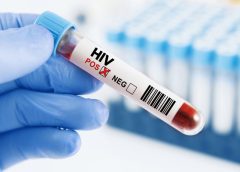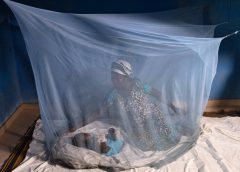Over the past few decades, Rwanda has made significant strides in tackling HIV/AIDS, but challenges remain. The country has been praised for its comprehensive response to the epidemic, including public health campaigns, access to treatment, and community support systems. However, the disease still affects thousands of individuals, and the fight against HIV/AIDS in Rwanda is far from over. This article highlights the current situation, provides insights into the impact on local communities, and shares personal testimonies of resilience. Current Situation: Rwanda has made notable progress in reducing the impact of…
SOMA INKURUCategory: Health
The UK’s NHS to roll out free antismoking pill. Will it work?
The UK’s National Health Service (NHS) is rolling out a free antismoking pill called varenicline for British smokers. Research has shown that varenicline is more effective than traditional nicotine-replacement therapies such as gum or patches. Approximately 85,000 smokers will be eligible to receive the antismoking medication which will be provided alongside “behavioural support” programmes aimed at helping people to quit smoking, the NHS announced earlier this week. Research conducted by University College London suggests that it might prevent approximately 9,500 smoking-related deaths within the next five years. “This simple daily…
SOMA INKURUThe Sweet Danger: The Impact of Sugar on Health
Sugar consumption has skyrocketed globally, and Rwanda is no exception. As the country experiences economic growth and urbanization, the availability and consumption of sugary foods and beverages have increased significantly. While sugar adds sweetness to our lives, excessive intake poses serious health risks. This article delves into the detrimental effects of sugar on health in Rwanda and shares personal testimonies from individuals grappling with sugar-related health issues. Harmful Health Effects of Excessive Sugar Intake: Sugar, especially in its refined forms, is linked to a myriad of health problems. When consumed…
SOMA INKURURwanda on Track to Eradicate Malaria by 2030
The Rwanda Biomedical Center (RBC) reports that the Rwandan government has set an ambitious goal to completely eradicate malaria before 2030. The progress over the past seven years has been impressive, with malaria cases dropping by nearly 90%. Since the beginning of the year, over 500,000 people have been affected by malaria in Rwanda, and 61 have died from it. Health authorities are continuing efforts to distribute insecticide-treated nets to help protect the population. The increase in malaria cases is mainly attributed to the seasonal rains, which contribute to the…
SOMA INKURURwanda Receives Medical Refrigerators and Mobile Clinics
The Aga Khan University Hospital, an international teaching hospital for healthcare based in Nairobi, has donated two mobile clinic vehicles and 20 medical refrigerators to Rwanda. These resources will help store vaccines and deliver essential healthcare services to rural communities directly. On Tuesday, November 5, 2024, the Director General of Rwanda Biomedical Center (RBC), Prof. Mambo Claude Muvunyi, and Shekar Iyer, Aga Khan Hospital’s Director of Operations, signed the donation agreement. The initiative, funded by the German Federal Ministry for Economic Cooperation and Development (BMZ), is valued at 490 million…
SOMA INKURUUrgent Alert: Marburg Virus Outbreak Claims 16 Lives in Rwanda, Linked to Fruit Bat Infected Mines Near Kigali
Rwanda’s Minister of Health, Dr. Sabin Nsanzimana, recently confirmed that the Marburg virus, now responsible for 16 deaths in the country, was traced to fruit bats inhabiting caves in mineral mines near Kigali. The outbreak, which began in August and September, coincides with the breeding season of the bats, during which they emit more saliva, increasing transmission risk. Dr. Nsanzimana explained that a mine worker who had been infected returned home, sought medical attention, and recovered. Unfortunately, he unknowingly transmitted the Marburg virus to his wife, who later died while…
SOMA INKURUHere Are Diseases That Are Taking Many Lives Despite Being Preventable
Statistics from health authorities continue to show a troubling rise in non-communicable diseases (NCDs) severely impacting many lives. For example, the number of people suffering from diabetes, hypertension, cancer, and other conditions is increasing at an alarming rate. However, these diseases can be prevented, often through simple and accessible means for everyone. Health is priceless! While there are well known and long established diseases, today, non communicable diseases are becoming more prevalent and claiming many lives. Unfortunately, many people are not taking proactive measures to prevent them. Today, Let’s Discuss…
SOMA INKURUMarburg Virus Outbreak in Rwanda: A Public Health Update
As Rwanda continues to grapple with the Marburg virus outbreak, recent reports indicate a cautiously optimistic trend in the nation’s battle against this severe viral disease. The country has recorded a total of 65 confirmed cases and 15 deaths since the outbreak began in late September. In a recent interview, Dr. Sabin Nsanzimana emphasized the critical role of healthcare workers in managing the crisis. “Our healthcare professionals have shown remarkable dedication under challenging circumstances,” he stated. “They are on the front lines, and their safety and well-being remain a priority.”…
SOMA INKURUThe harmful effects of alcohol on health
Many of us drink alcohol to relax and socialize. But drinking too much alcohol can negatively affect your physical and mental health, your actions, and your decision-making. There are many short and long-term side effects of alcohol consumption. No level of alcohol consumption can be considered safe. To reduce the risk of harm from alcohol-related disease or injury for healthy adults: drink no more than 10 standard drinks per week drink no more than 4 standard drinks on any one day But some people need to take more care. You…
SOMA INKURURwanda’s Changing Family Dynamics: Analyzing the Decline in Births per Mother
The number of children per mother in Rwanda has been steadily declining, reflecting significant changes in societal norms, access to education, and healthcare services. According to data from the National Institute of Statistics of Rwanda (NISR), the Total Fertility Rate (TFR) dropped from 6.1 children per woman in 2005 to 3.8 children in 2022. This decline is a result of concerted efforts in family planning and women’s empowerment, reshaping family dynamics across the country. From Six to Four: The Journey of Fertility Decline In 2005, the average Rwandan woman had…
SOMA INKURU










